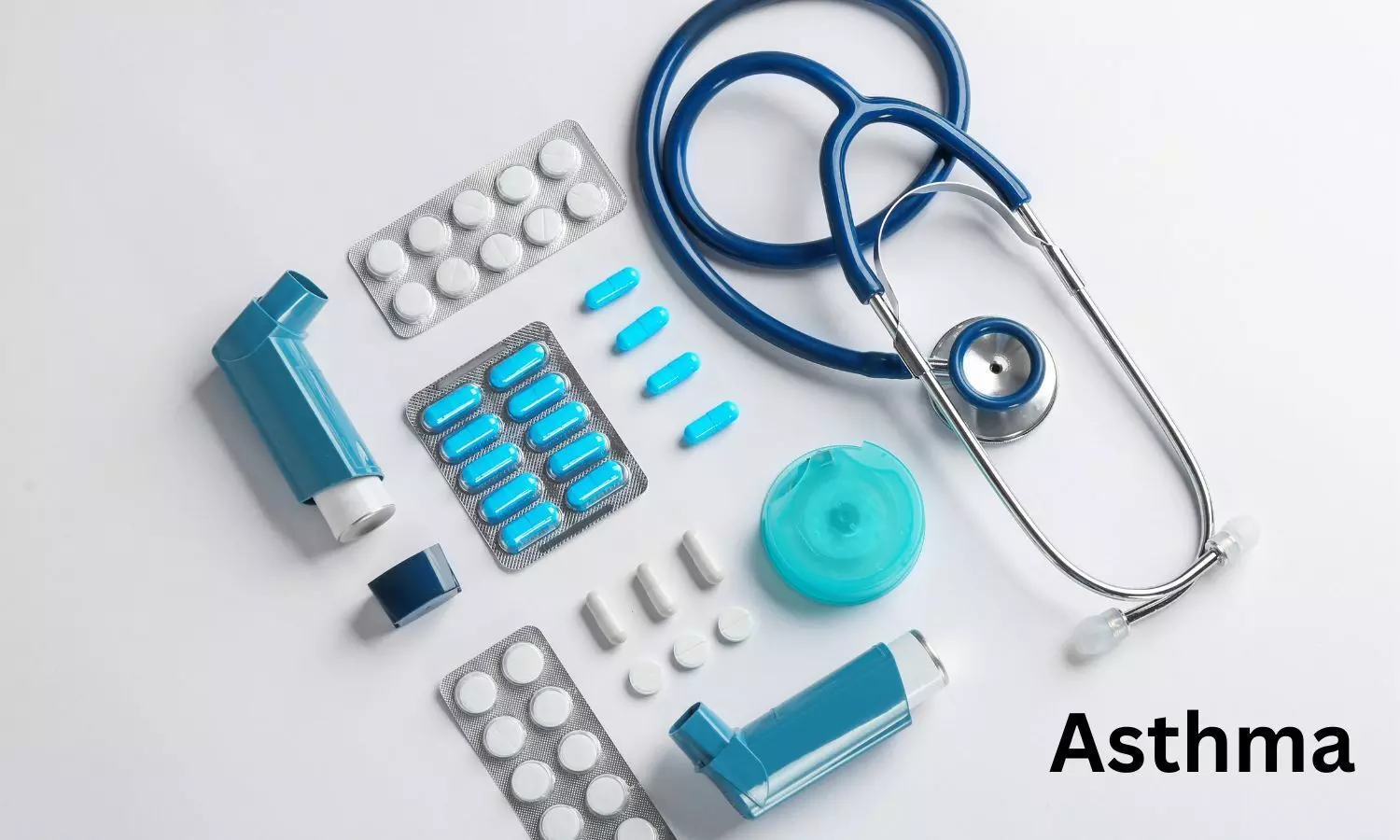- Home
- Medical news & Guidelines
- Anesthesiology
- Cardiology and CTVS
- Critical Care
- Dentistry
- Dermatology
- Diabetes and Endocrinology
- ENT
- Gastroenterology
- Medicine
- Nephrology
- Neurology
- Obstretics-Gynaecology
- Oncology
- Ophthalmology
- Orthopaedics
- Pediatrics-Neonatology
- Psychiatry
- Pulmonology
- Radiology
- Surgery
- Urology
- Laboratory Medicine
- Diet
- Nursing
- Paramedical
- Physiotherapy
- Health news
- AYUSH
- State News
- Andaman and Nicobar Islands
- Andhra Pradesh
- Arunachal Pradesh
- Assam
- Bihar
- Chandigarh
- Chattisgarh
- Dadra and Nagar Haveli
- Daman and Diu
- Delhi
- Goa
- Gujarat
- Haryana
- Himachal Pradesh
- Jammu & Kashmir
- Jharkhand
- Karnataka
- Kerala
- Ladakh
- Lakshadweep
- Madhya Pradesh
- Maharashtra
- Manipur
- Meghalaya
- Mizoram
- Nagaland
- Odisha
- Puducherry
- Punjab
- Rajasthan
- Sikkim
- Tamil Nadu
- Telangana
- Tripura
- Uttar Pradesh
- Uttrakhand
- West Bengal
- Medical Education
- Industry
Benralizumab reduces inhaled corticosteroid usage and help in asthma control

Asthma is a prevalent respiratory disease, affecting over 300 million people worldwide. Approximately 3-5% of asthma patients have severe disease, which involves poor symptom control, frequent exacerbations, and high exposure to oral corticosteroids. These patients often have eosinophilic asthma with uncontrolled inflammation.
According to The Lancet, Patients controlled on benralizumab can significantly reduce ICS therapy while maintaining asthma control.
Stepwise intensification of inhaled corticosteroids is routine for severe eosinophilic asthma, although some patients may not respond to high-dose ICS. Dose reductions are advised for patients responding to biologics, but limited safety evidence exists.
The SHAMAL study was conducted at 22 sites across four countries, involving adults with severe eosinophilic asthma and low Asthma Control Questionnaire scores. Participants received three doses of benralizumab before screening. The study randomly assigned participants to either reduce their high-dose inhaled corticosteroid (ICS) dose to a medium, low, or as-needed dose (reduction group) or continue (reference group) their ICS-formoterol therapy for 32 weeks, followed by a 16-week maintenance period. The primary endpoint was the proportion of participants who successfully reduced their ICS-formoterol dose by week 32, assessed in the reduction group.
Key results are:
· 208 patients were screened and enrolled in the run-in period.
· 168 patients were randomly assigned to either the reduction (n=125) or reference (n=43) arms.
· 110 patients reduced their ICS-formoterol dose: 18 to medium-dose, 20 to low-dose, and 72 to as-needed only.
· By week 48, in 113 patients, reductions were maintained. One hundred fourteen patients in the reduction group had zero exacerbations during tapering.
· The adverse events rate was similar between groups: 91 in the reduction and 35 in the reference group.
· 17 serious adverse events were reported: 12 in the reduction and five in the reference group.
· No deaths were reported.
The results suggest that individuals treated with benralizumab can significantly reduce their use of inhaled corticosteroids (ICS) while maintaining effective asthma control. They added that our findings underscore the opportunity to shift away from high-dose ICS towards a precision-medicine approach with improved patient outcomes.
AstraZeneca funded the study.
Reference:
Jackson, D. J et al. Reduction of daily maintenance inhaled corticosteroids in patients with severe eosinophilic asthma treated with benralizumab (SHAMAL): a randomised, multicentre, open-label, phase 4 study. The Lancet. https://doi.org/10.1016/s0140-6736(23)02284-5
BDS, MDS in Periodontics and Implantology
Dr. Aditi Yadav is a BDS, MDS in Periodontics and Implantology. She has a clinical experience of 5 years as a laser dental surgeon. She also has a Diploma in clinical research and pharmacovigilance and is a Certified data scientist. She is currently working as a content developer in e-health services. Dr. Yadav has a keen interest in Medical Journalism and is actively involved in Medical Research writing.


